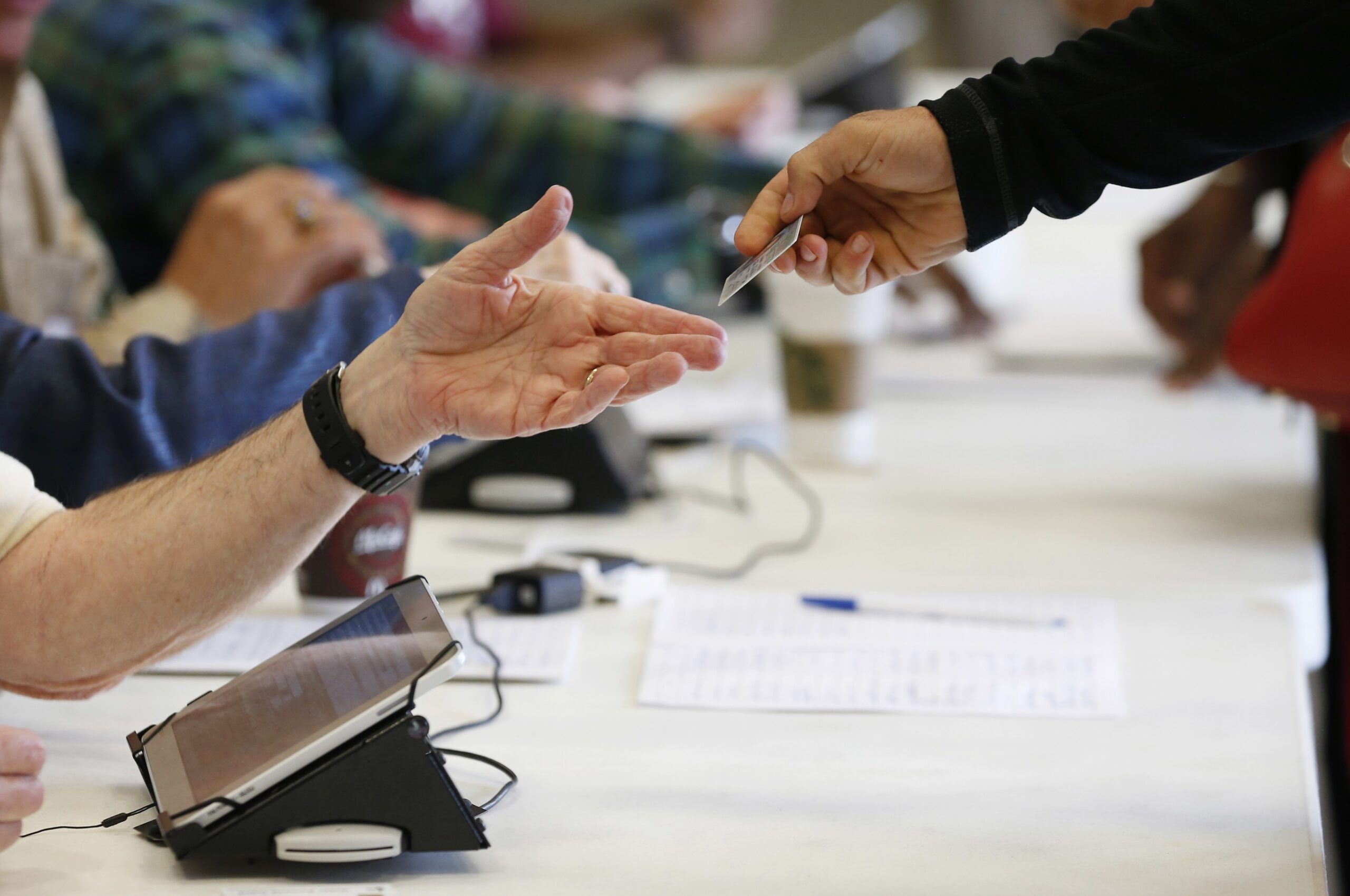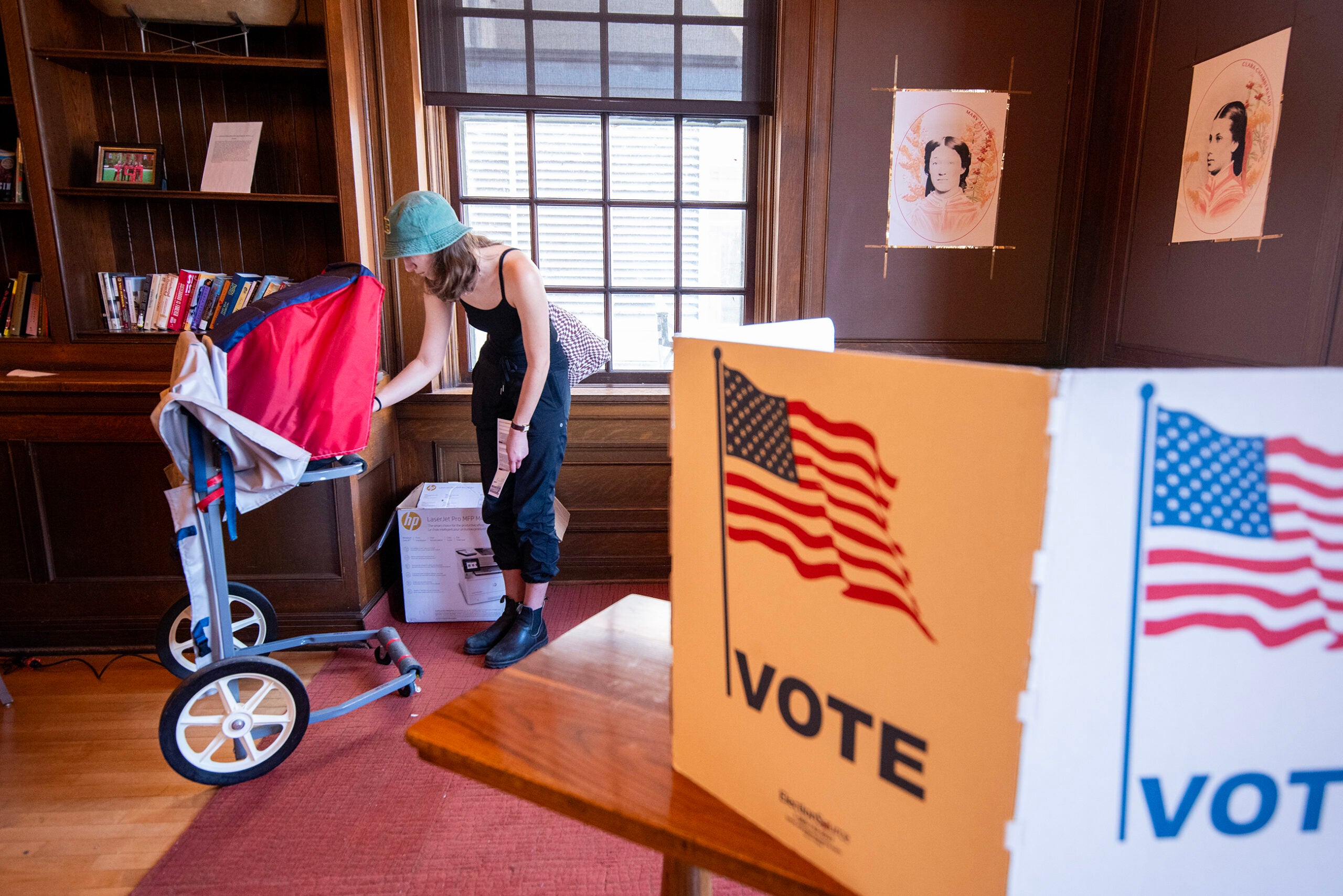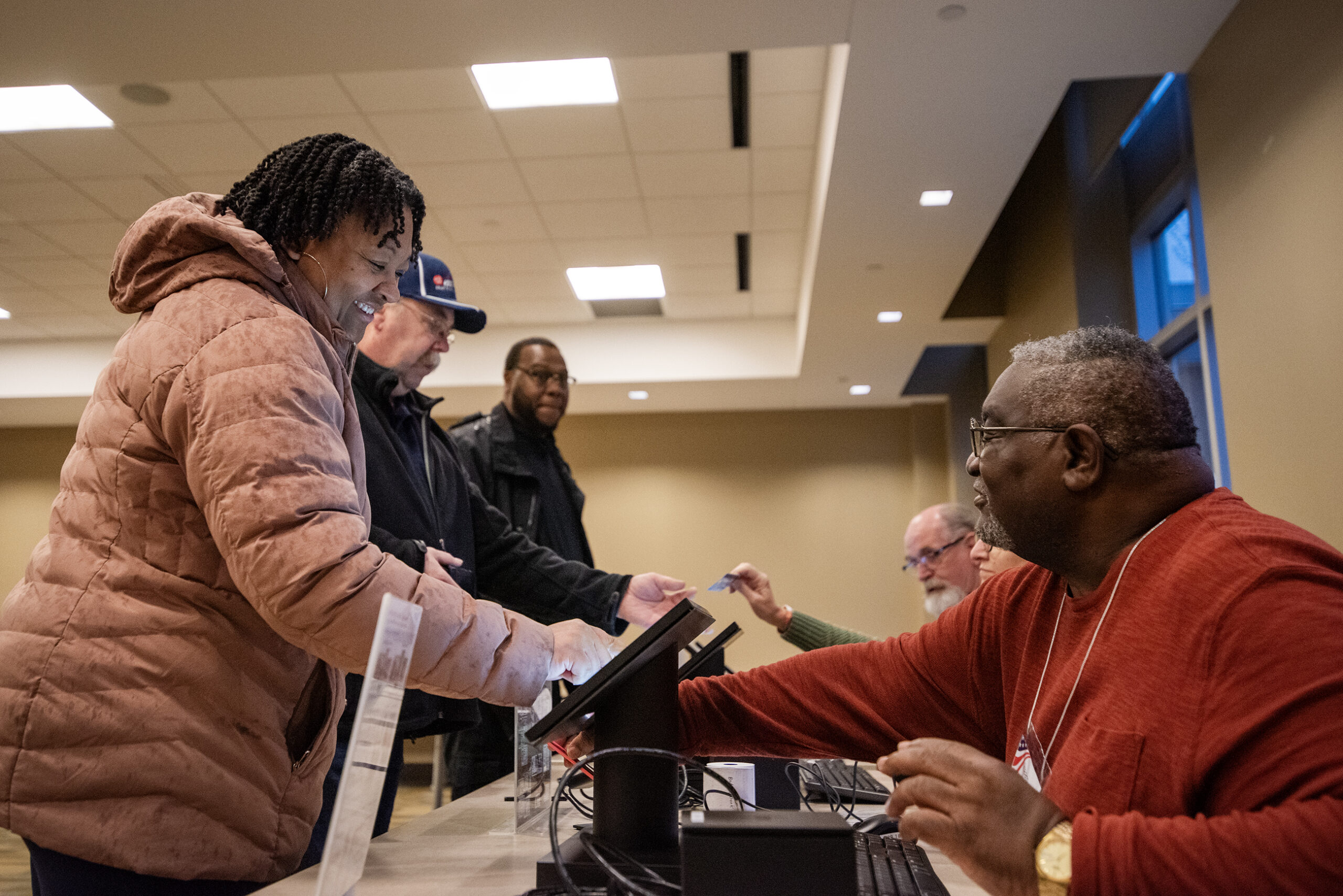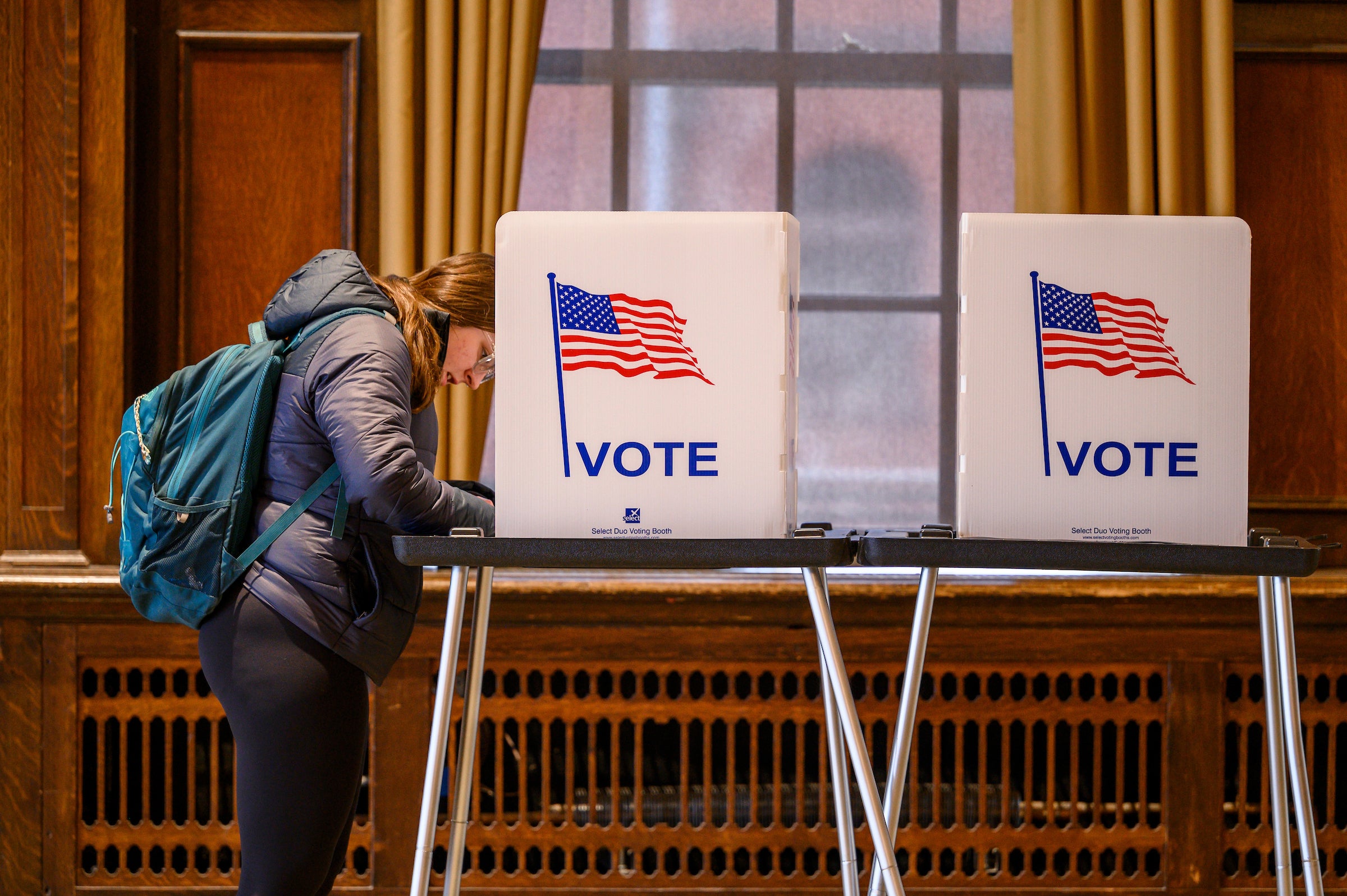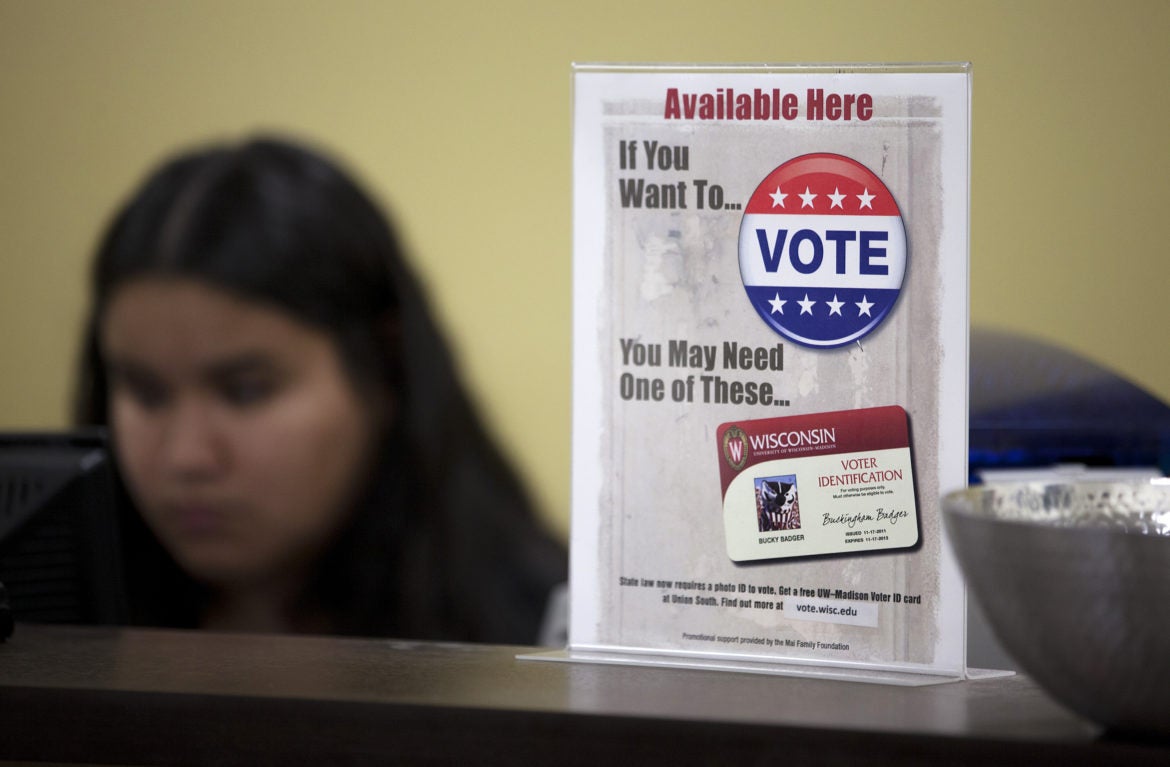City clerks testified in support of Wisconsin’s voter ID law and other election-related laws in federal court on Tuesday.
Taking the stand for the state’s defense in an ongoing federal trial on state election laws, city clerks Constance McHugh, of Cedarburg, and Susan Westerbeke, of Port Washington, said changes including a limit on the number of locations for absentee voting and the elimination of special registration deputies have actually simplified some things for them.
McHugh said only having to manage one absentee voting location has given her more control of the process, more assurance in the security of ballots and has allowed her to work with limited staff.
Stay informed on the latest news
Sign up for WPR’s email newsletter.
She also spoke in support of the state’s elimination of special registration deputies, individuals who receive special training to register individuals to vote.
“Their heart is in the right place,” she said of the deputies, but added their work “complicates things and requires follow up” due to occasionally missing or incorrect information on applications facilitated by the deputies.
Westerbeke agreed with many of McHugh’s assertions. She also spoke to the elimination of special registration deputies at high schools and the shortening of a residency requirement for voting registrants from 28 days to 10 days.
“I have not noticed there has been a great difference, other than 28 days does give someone more time to prove residency,” she said.
Waukesha County clerk Kathleen Novack also testified in support of some election laws concerned in the case, all of which have been put in place since 2011. She said limiting early voting in parts of the state has helped “level the playing field.”
“There has to come a point when it’s just giving over-access … to particular parts of the state,” she said.
The liberal groups challenging the state’s election laws called Madison city clerk Maribeth Witzl-Behl last week. Witzl-Behl shared concerns about the laws, including their potential to increase wait times at the polls.
The state also called Leah Fix, supervisor of the Compliance Audit and Fraud Unit in the state Division of Motor Vehicles, for the defense on Tuesday. Fix supervises the team that works to verify the identity of those working through a special petition process in pursuit of a state-issued photo ID.
Fix outlined the particular challenges faced by petitioners born in Tennessee, South Carolina and Cook County, Illinois. Vital records required for a state-issued ID application have been difficult to locate for some in those locations.
She said her team is “always looking for solutions.”
Lawyers for the liberal groups challenging the state’s voter ID law pointed out some of those challenging cases have lasted as long as 16 months.
The trial is expected to continue through Thursday.
Wisconsin Public Radio, © Copyright 2025, Board of Regents of the University of Wisconsin System and Wisconsin Educational Communications Board.
